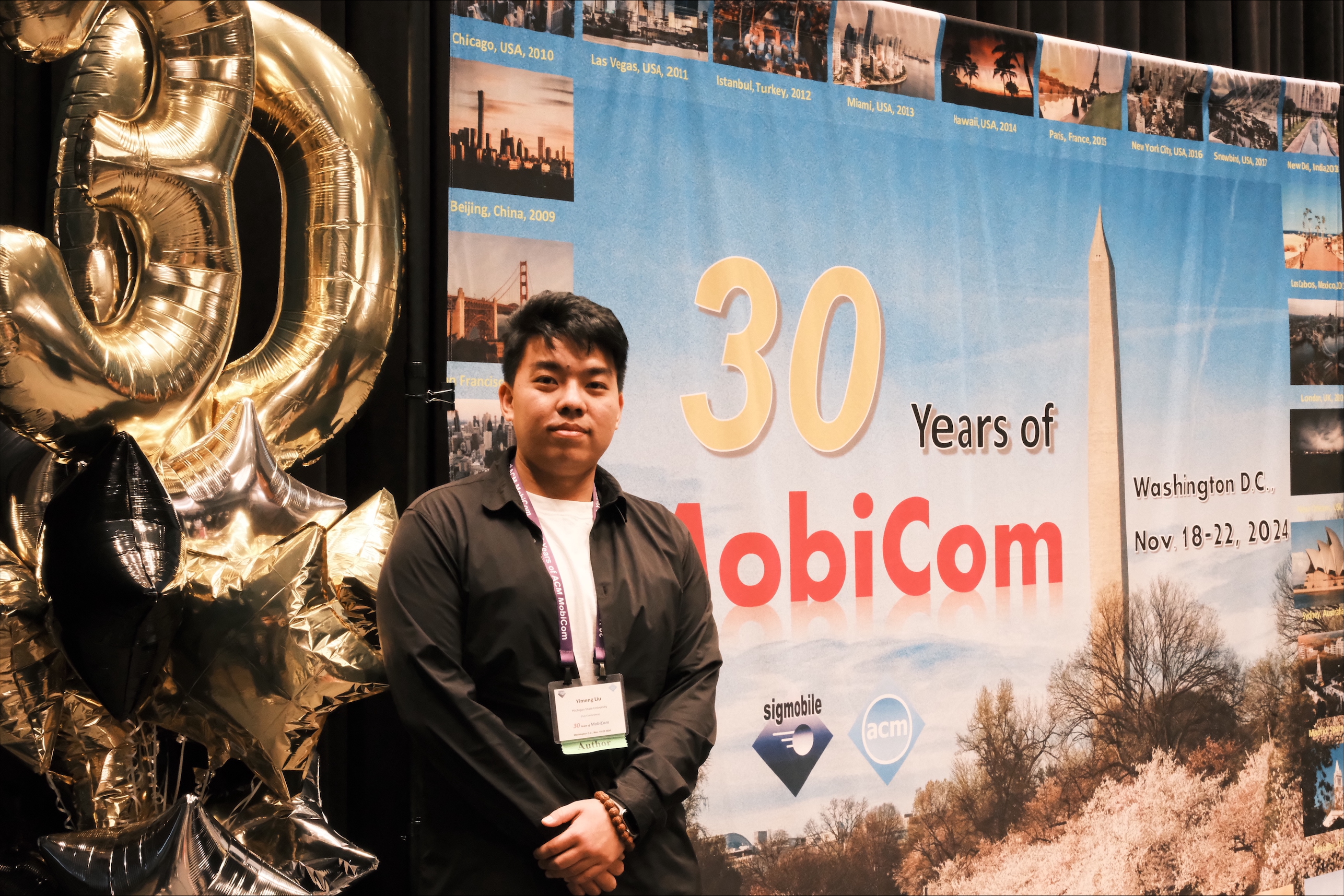Yimeng Liu is a doctoral candidate in MSU’s College of Engineering.
My Michigan State University story starts in the summer of 2022, when I was a third-year math major at Virginia Tech, curious about how computer science could be applied in the real world. A friend from MSU recommended I apply to the Engineering Summer Undergraduate Research Experience program and that’s how I found myself in East Lansing that May. The supportive environment at MSU made an immediate impression on me. The campus was welcoming. The lab facilities were impressive and everyone I met — from professors to other students — were willing to help me learn.
Under the guidance of Zhichao Cao, I dove into research on wireless sensing. At first, I spent my days reading papers, trying to understand how electrical signals work and how wireless systems function. It was completely new to me but also fascinating. Later, I met doctoral student Maolin Gan and together we built a mmWave radar testbed which is a type of sensor often used in cars for collision detection. Our goal was to push the technology’s capabilities further using it almost like a low-resolution camera to see the plants by capturing images of their structure.
Turning raw radar data into useful images wasn't easy. It was one of the most challenging parts of the project because it required me to quickly learn new coding skills, along with radar and signal processing knowledge I had never encountered before. I spent long hours writing code and tracking down bugs. But all that hard work led to a moment I'll never forget. The first time I saw a clear image appear on the screen, it felt like magic. Suddenly, all those abstract signals and complex math turned into something real — an image created by the radar I had helped build. It was in that moment I realized I had made the right choice joining the lab. I wasn't just learning about wireless technology — I was contributing to building it.
By fall 2023, I returned to MSU as a computer science doctoral student, excited to continue exploring how technology can help agriculture. Agriculture faces constant challenges, from unpredictable weather to the threat of crop diseases. Accurate detection of plant health conditions is critical to protecting yields and reducing costs. That’s where our work comes in.
At MSU, we’re building sensing systems that give farmers a clearer picture of plant health in real time, using affordable, non-invasive technologies. The core of our approach is combining different types of sensors — especially radar and cameras — to go beyond what either can do alone. Cameras capture visible details, while radar can see through leaves and measure moisture in ways the human eye can’t. We provide an innovative fusion technique to dramatically improve the system's ability to detect subtle plant health changes, even in challenging outdoor environments.
But collecting images is only the first step. Using advanced computer science tools like deep learning, contrastive learning and sensor calibration, we process these complex data streams to extract meaningful insights. Our systems can now not only detect when leaves are wet — a key factor for disease development — but also measure exactly how wet they are, with high accuracy. These innovations show how computer science, wireless sensing and agriculture can work together to create practical solutions for real-world farming challenges.
None of these accomplishments would have been possible without MSU’s incredible community. Beyond the technical resources — like access to high-performance computing clusters — events like the Mid-Michigan Symposium for Undergraduate Research Experiences, or MidSURE, provided opportunities to share our work and engage in meaningful discussions with experts from many different disciplines. It was inspiring to see how people from diverse fields bring their unique perspectives together to create something greater than any one area could achieve alone.
MSU didn’t just give me tools; it gave me a community that transforms curiosity into real-world impact. If you’re a Spartan who, like me, dreams of turning theory into innovation, I hope you’ll visit our lab, join a seminar or simply stop by to see how MSU empowers students to push the boundaries of what’s possible.
